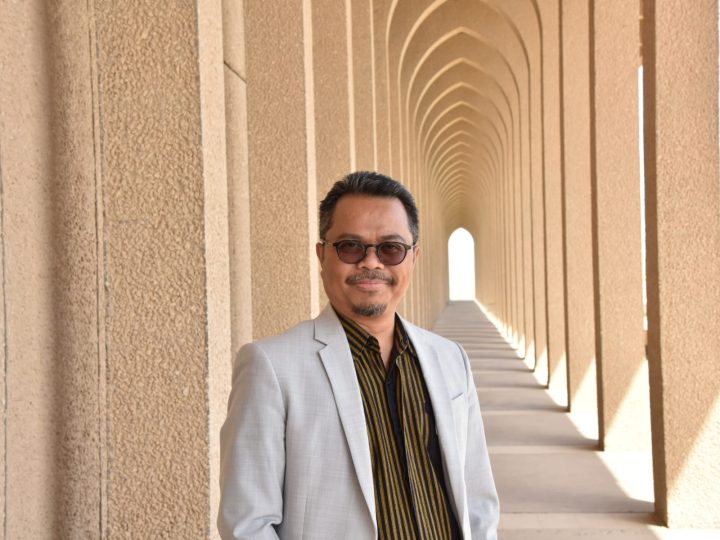Staff Page / Visiting Scholar / Past Member
Sumanto Al Qurtuby

- Research Departments・Position
- Cross-Regional Studies
Visiting Research Scholar - Area
- Religion and Society
Conflict, Violence, and Peacebuilding
Muslim Cultures and Politics
Anthropology of Islam - Research Interests / Keywords
- Indonesia/Southeast Asia-Middle East/Gulf connection
Intra/inter-religious relations
The role of religion in public affairs - Contact
- squrtuby@gmail.com
Sumanto Al Qurtuby
Overview
The Polemics of Pro/Anti-Jewish Narratives and Israeli-Palestinian Conflicts in Indonesia: Perspectives from Islam and Christianity
Views concerning Jewish communities (and Judaism) and Israeli-Palestinian conflicts are not monolithic but deeply varied and contested among Indonesian Muslim and Christian groups. Some religious groups fiercely oppose Jews, develop antisemitic discourses, stand for Hamas/Palestine in Israeli-Palestinian conflicts, and tend to defy any peaceful Muslim-Jewish (and Israeli-Palestinian) initiatives, relations, and engagements. Others tend to be relaxed and modest in their views of Jewish communities and prolonged Israeli-Palestinian conflicts. While condemning Israel’s radical and ultranationalist factions, they also strongly criticize Palestine’s militant religious/Islamist organizations and support peaceful Muslim-Jewish and Israeli-Palestinian relations. From the past to the present, both antisemitism and prosemitism ideas and practices have existed within Indonesian Islam and Christianity, and a variety of Islamic and Christian scholars and leaders, ranging from the conservative to the liberal, have indeed expressed different opinions and understandings of Jewish communities, Israel/Palestine, and Israeli-Palestinian conflicts.
This proposed research project examines the underlying factors and rationales of pro/anti-Jewish views/narratives (or pro/antisemitism) and Israeli-Palestinian ongoing conflicts among Indonesia’s various Muslim and Christian groups from historical perspectives and contemporary ethnographic studies. The project also investigates the social implications of pros and cons concerning Jews (and Judaism) and the Israeli-Palestinian conflict toward Muslim-Jewish/Christian relations and engagements in Indonesia.
While at CSEAS, I will collect historical and ethnographic data on this proposed project. The historical data will be gathered through the library (online/offline) while current ethnographic data will be collected through “Netnography” (“Internet ethnography”) or Digital Ethnography through Internet sources, social media, and online interviewing (or email correspondence). I also plan to use my previous ethnographic field notes (including the results of my interviews and participant observations) about Indonesian Islam/Christianity and Muslim/Christian-Jewish relations in the country. I expect to produce scholarly articles from this project. In addition, I plan to work on a chapter about Southeast Asian diasporas in Arabian Gulf countries.
This proposed research project examines the underlying factors and rationales of pro/anti-Jewish views/narratives (or pro/antisemitism) and Israeli-Palestinian ongoing conflicts among Indonesia’s various Muslim and Christian groups from historical perspectives and contemporary ethnographic studies. The project also investigates the social implications of pros and cons concerning Jews (and Judaism) and the Israeli-Palestinian conflict toward Muslim-Jewish/Christian relations and engagements in Indonesia.
While at CSEAS, I will collect historical and ethnographic data on this proposed project. The historical data will be gathered through the library (online/offline) while current ethnographic data will be collected through “Netnography” (“Internet ethnography”) or Digital Ethnography through Internet sources, social media, and online interviewing (or email correspondence). I also plan to use my previous ethnographic field notes (including the results of my interviews and participant observations) about Indonesian Islam/Christianity and Muslim/Christian-Jewish relations in the country. I expect to produce scholarly articles from this project. In addition, I plan to work on a chapter about Southeast Asian diasporas in Arabian Gulf countries.
